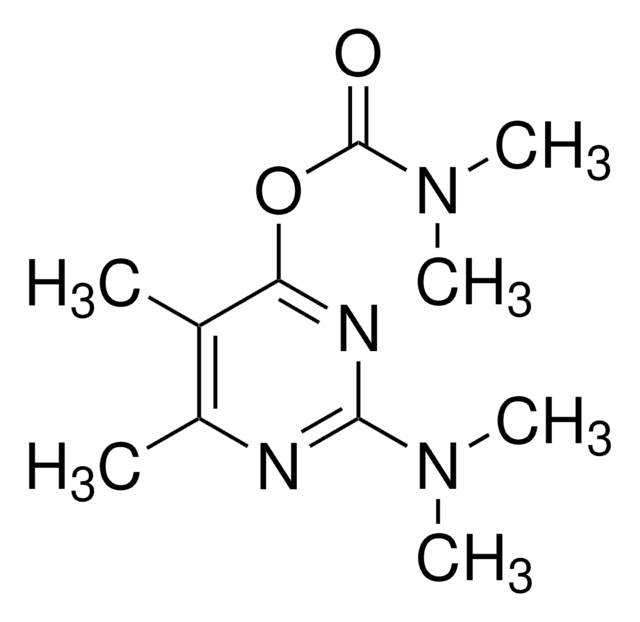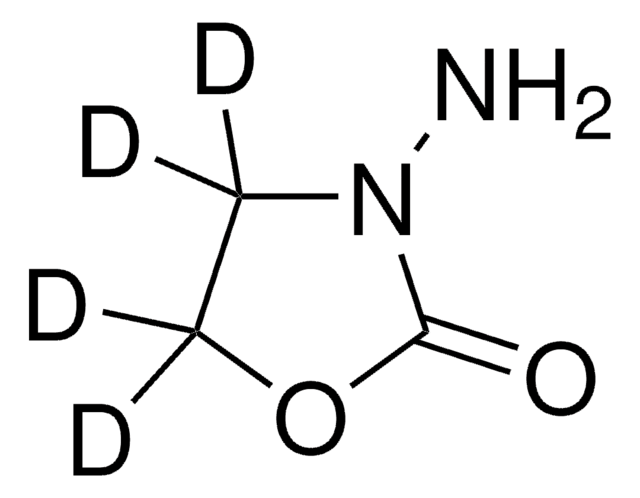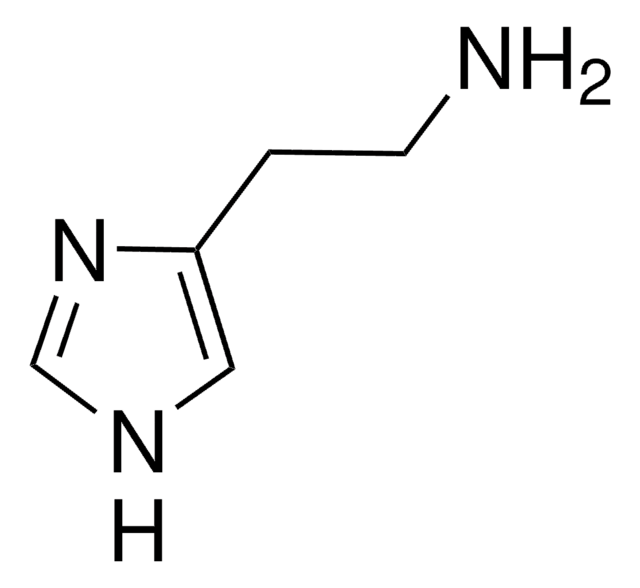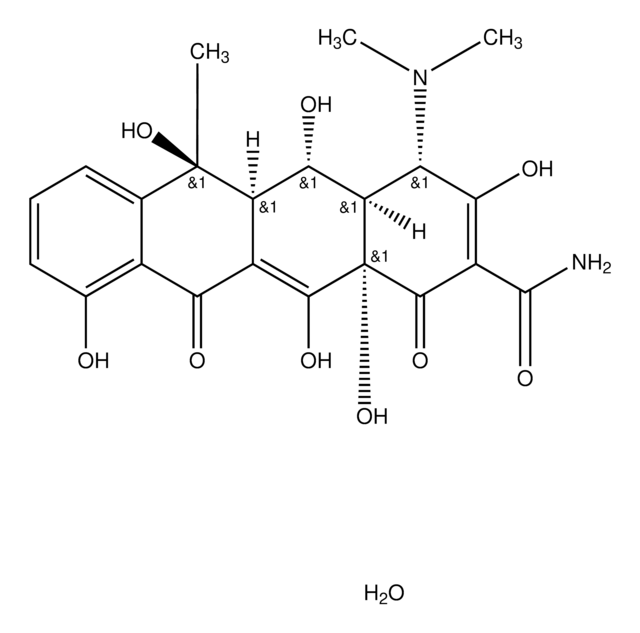48760
Gentamicin sulfate from Micromonospora purpurea
≥590 μg/mg of gentamicin
Synonym(s):
Gentamicin C1
About This Item
Recommended Products
biological source
Micromonospora purpurea
Quality Level
form
powder
optical activity
[α]/D 107.0 to 121.0°, c = 10% in H2O
specific activity
≥590 μg/mg of gentamicin
mol wt
Mr 694-723
loss
≤18.0% loss on drying
color
white to off-white
pH
3.5-5.5 (4% in H2O)
antibiotic activity spectrum
Gram-negative bacteria
Gram-positive bacteria
mycoplasma
Mode of action
protein synthesis | interferes
storage temp.
2-8°C
SMILES string
OS(O)(=O)=O.CN[C@@H]1[C@@H](O)[C@H](OC[C@]1(C)O)O[C@H]2[C@H](N)C[C@H](N)[C@@H](O[C@H]3O[C@H](CN)CC[C@H]3N)[C@@H]2O.CN[C@@H]4[C@@H](O)[C@H](OC[C@]4(C)O)O[C@H]5[C@H](N)C[C@H](N)[C@@H](O[C@H]6O[C@@H](CC[C@H]6N)[C@@H](C)N)[C@@H]5O.CN[C@H](C)[C@@H]7CC[C@@H](N)[C@H](O7)O[C@@H]8[C@@H](N)C[C@@H](N)[C@H](O[C@H]9OC[C@](C)(O)[C@H](NC)[C@H]9O)[C@H]8O
InChI
1S/C21H43N5O7.C20H41N5O7.C19H39N5O7.H2O4S/c1-9(25-3)13-6-5-10(22)19(31-13)32-16-11(23)7-12(24)17(14(16)27)33-20-15(28)18(26-4)21(2,29)8-30-20;1-8(21)12-5-4-9(22)18(30-12)31-15-10(23)6-11(24)16(13(15)26)32-19-14(27)17(25-3)20(2,28)7-29-19;1-19(27)7-28-18(13(26)16(19)24-2)31-15-11(23)5-10(22)14(12(15)25)30-17-9(21)4-3-8(6-20)29-17;1-5(2,3)4/h9-20,25-29H,5-8,22-24H2,1-4H3;8-19,25-28H,4-7,21-24H2,1-3H3;8-18,24-27H,3-7,20-23H2,1-2H3;(H2,1,2,3,4)/t9-,10-,11+,12-,13+,14+,15-,16-,17+,18-,19-,20-,21+;8-,9-,10+,11-,12+,13+,14-,15-,16+,17-,18-,19-,20+;8-,9+,10-,11+,12-,13+,14+,15-,16+,17+,18+,19-;/m110./s1
InChI key
RDEIXVOBVLKYNT-HDZPSJEVSA-N
Related Categories
General description
Application
Biochem/physiol Actions
Antimicrobial spectrum: Gram-negative and Gram-positive bacteria, and mycoplasma.
Packaging
Unit Definition
Preparation Note
Other Notes
Signal Word
Warning
Hazard Statements
Precautionary Statements
Hazard Classifications
Skin Sens. 1
Storage Class Code
11 - Combustible Solids
WGK
WGK 2
Flash Point(F)
Not applicable
Flash Point(C)
Not applicable
Personal Protective Equipment
Certificates of Analysis (COA)
Search for Certificates of Analysis (COA) by entering the products Lot/Batch Number. Lot and Batch Numbers can be found on a product’s label following the words ‘Lot’ or ‘Batch’.
Already Own This Product?
Find documentation for the products that you have recently purchased in the Document Library.
Customers Also Viewed
Our team of scientists has experience in all areas of research including Life Science, Material Science, Chemical Synthesis, Chromatography, Analytical and many others.
Contact Technical Service








